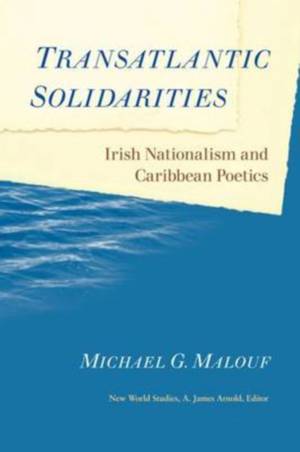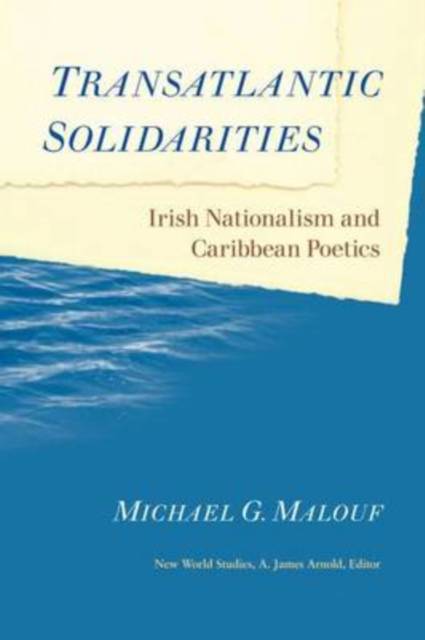
- Retrait gratuit dans votre magasin Club
- 7.000.000 titres dans notre catalogue
- Payer en toute sécurité
- Toujours un magasin près de chez vous
- Retrait gratuit dans votre magasin Club
- 7.000.0000 titres dans notre catalogue
- Payer en toute sécurité
- Toujours un magasin près de chez vous
Description
Despite their prominent place in twentieth-century literature in English, novelists and poets from Ireland and the anglophone Caribbean have long been separated by literary histories in which they are either representing a local, nationalist tradition or functioning within an international movement such as modernism or postcolonialism. Redressing this either/or framework, Michael Malouf recognizes an integral history shared by these two poetic and political traditions, arising from their common transatlantic history in relation to the British empire and their common spaces of migration in New York and London. In examining these cross-cultural exchanges, he reconsiders our conception of transatlantic space and offers a revised conception of solidarity that is much more diverse than previously assumed. Offering a new narrative of cultural influence and performance, this work specifically demonstrates the formative role of Irish nationalist discourse--expressed in the works of Eamon de Valera, George Bernard Shaw, and James Joyce--in the transnational political and aesthetic self-fashioning of three influential Caribbean figures: Marcus Garvey, Claude McKay, and Derek Walcott. It provides both an innovative historical and literary methodology for reading cross-cultural relations between two postcolonial cultures and a literary and political history that can account for the recent diversity of the field of anglophone world literature.
Spécifications
Parties prenantes
- Auteur(s) :
- Editeur:
Contenu
- Nombre de pages :
- 272
- Langue:
- Anglais
- Collection :
Caractéristiques
- EAN:
- 9780813927800
- Date de parution :
- 11-02-09
- Format:
- Livre broché
- Format numérique:
- Trade paperback (VS)
- Dimensions :
- 152 mm x 226 mm
- Poids :
- 385 g







